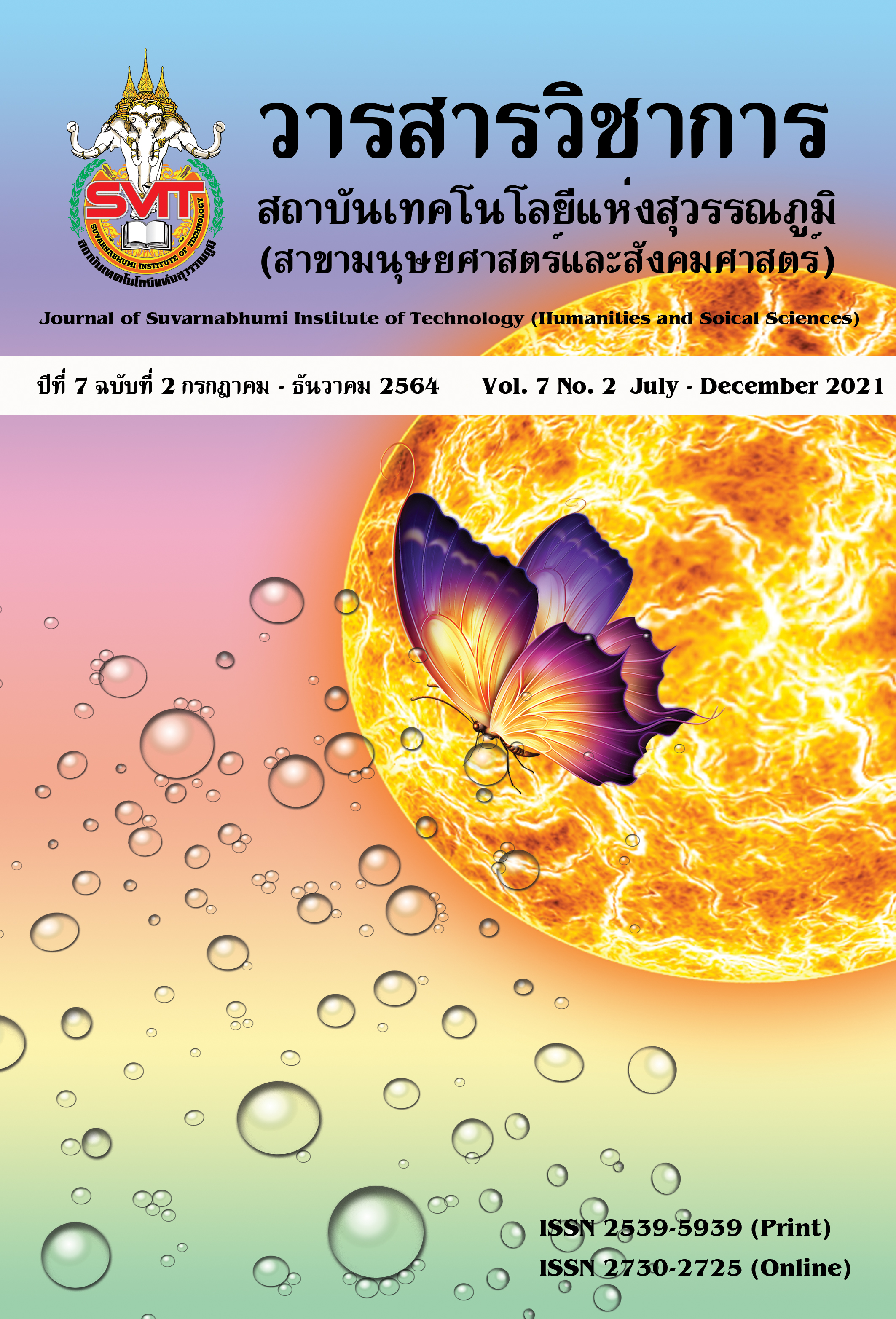EFFECTIVENESS ACADEMIC LEADERSHIP IN THE DIGITAL ERA OF PRIVATE UNIVERSITY ADMINISTRATORS
Keywords:
Effectivness Academic Leadership, Digital Era, Private University AdministratorsAbstract
The purposes of this research were to study: 1) the component of effectiveness
academic leadership in the digital era of private university administrators 2) to analyze components [of effectiveness academic leadership in the digital era of private university administrators and 3) to investigate the congruency of effectiveness academic leadership component in the digital era of private university administrators. The study populations were 460 instructors, experts and administrators in 15 private universities in 2018. The sample size was determined by Krecie and Morgan. Study sample were 210 instructors, experts and administrators random by stratified sampling technique. The instrument in this research was a questionnaire. The statistics used for data analysis were percentage, standard deviation, Pearson Product moment correlation Coefficient and Confirmatory factor analysis.
The results of the study revealed that:
1) The component of effectiveness academic leadership in the digital era of private university administrators were 4 components that visioning aspect, innovation information technology development aspect, inspiration aspect and creative thinking aspect.
2) The analysis result of effectiveness academic in the digital era \of private university administrators was 72 indicators as follows; visioning aspect with 17 indicators , innovation information technology development aspect with 18 indicators, inspiration aspect with 21 indicators and creative thinking aspect with 16 indicators with suitable on criteria.
3) The investigation consistency of effectiveness academic in the digital era of private university administrators that according to empirical data.
References
ขนิษฐา โพธิสินธุ์. (2559). รูปแบบภาวะผู้นำเชิงวิชาการที่มีประสิทธิผลของผู้บริหารสถานศึกษาในสังกัดองค์กรปกครองส่วนท้องถิ่น. วารสารพัฒนาเทคนิคศึกษา, 28(97), 60-65.
วีรยุทธ ชาตะกาญจน์. (2551). เทคนิคการบริหารสำหรับนักบริหารการศึกษามืออาชีพ. กรุงเทพฯ: สำนักพิมพ์จุฬาลงกรณ์มหาวิทยาลัย.
สถาบันพัฒนาความก้าวหน้า. (2553). ยุทธศาสตร์การพัฒนาวิชาชีพผู้บริหารสถานศึกษา ตามหลักเกณฑ์ใหม่. กรุงเทพฯ: เอส.พี.เอ็น. การพิมพ์.
สำนักงานเลขาธิการสภาการศึกษา. (2559). สมรรถนะการศึกษาไทยในเวทีสากลพ.ศ.2558 (IMD 2015). กรุงเทพฯ: บริษัท พริกหวานกราฟฟิค จำกัด.
สุรจิตย์ ผิวงาม. (2558). ภาวะผู้นำที่มีประสิทธิผลของผู้บริหารในโรงเรียนดีเด่น: พหุกรณีศึกษา. วารสารมหาวิทยาลัยขอนแก่น, 38(4), 11-16.
เสริมศักดิ์ วิศาลาภรณ์. (2554). ความเที่ยงตรงตามเนื้อหา. ใน สารานุกรมวิชาชีพครูเฉลิมพระเกียรติพระบาทสมเด็จพระเจ้าอยู่หัว เนื่องในโอกาสพระราชพิธีมหามงคลเฉลิมพระชนพรรษา 7 รอบ 5 ธันวาคม 2554. กรุงเทพมหานคร: สำนักงานเลขาธิการคุรุสภา.
Alpay, Ersozlu., & Emine, Saklan. (2016). Instructional Leadership in Higher Education: How Does It Work?. British Journal of Education, 4(5), 1-15.
Blasé, Joseph. & Blasé, Jo. (2000). Effective instructional leadership: teachers' perspectives on how principals promote teaching and learning in schools. Journal of Educational Administration, 38(2), 130-141.
Cambell, Peter. (2018).The effective instructional leader. Journal of Educational Admini- stration, 3(8), 134-141.
Cronbach, L. J. (1951). Coefficient Alpha and the Internal Structure of Tests. Psychometrika, 6 (3), 297-334.
Elaine, G. (2016). Activity-based Costing. Retrieved November 24, 2005, from http://www. detrick/diction.cfm.
Hair, Joseph F, & et al. (2010). Multivariate Data Analysis: A Global Perspective (7th ed.). Upper Saddler River: Pearson.
Irfan, Bashir. & Usman, Khalil. (2017). Instructional Leadership at University Level in Pakistan: A Multi Variable Based Comparative Study of Leadership Styles of Heads of Academic Departments. Bulletin of Education and Research, 39(1), 175-186.
Downloads
Published
Issue
Section
License
The articles published are copyrighted by the Sarasas Journal of Humanities and Social Science. The opinions expressed in each article in this academic journal are those of the individual authors and do not reflect the views of Sarasas Suvarnabhumi Institute of Technology. The authors are solely responsible for all aspects of their respective articles. Any errors or inaccuracies in the articles are the sole responsibility of the authors.



